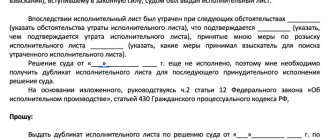Almost all people once face the most unpleasant situation when an argument on the Internet develops into a conflict, and then the opponent gets personal.
For some people, insults are an integral way of communication, and often those around them suffer simply because they were unlucky enough to be on the same platform as the insulter.
Wise people know that there is an article for insulting people on the Internet , and they try to use it to the fullest, while less prepared people respond symmetrically.
It is very difficult, but possible, to prove that you are right and punish the offender by legal means.
Due to the complexity, many do not even turn to government agencies, although in some cases this is guaranteed to punish the offender financially or the court will oblige him to engage in corrective labor for several years.
Under what article does one face liability for insulting someone on the Internet?
A typical situation: on the social network VKontakte or Odnoklassniki, your enemy made an impartial comment about you, and he did it on “neutral” or territory under his control - for example, on his page or in a city group.
Here you have two options to choose from:
- Try to convince the site administrators to remove the offensive entry (although it is very, very difficult to hold them accountable for refusal!);
- Bring to justice for insulting the boor himself, especially if his identity is known.
If you know who is being rude to you and the person is not hiding, choose the second option. It is simpler and will serve as a good lesson for those who are not used to watching their fingers typing all sorts of nonsense.
We are interested in the following articles:
- Article 5.61 of the Code of Administrative Offenses of the Russian Federation “Insult”. Punishes for insulting in an indecent form. The law does not provide a clear definition of what it is. The final word belongs to linguistic expertise. The sanction is from 1 thousand to 3 thousand rubles for citizens, and for qualified part 2 (public insult) – from 3 to 5 thousand rubles. The amount is small, but the main thing is the fact itself.
- Article 128.1 of the Criminal Code of the Russian Federation “Slander”. Dissemination of false information discrediting the honor and dignity of another person. Punishments vary widely, depending on the qualifications of the squad. Up to 3 million rubles and imprisonment for a couple of years. An excerpt from the article is below.
You personally should not deal with whether you are being slandered or insulted - this is the task of law enforcement agencies. Your main task is to correctly initiate the procedure for bringing the boor to justice.
But it is still DESIRABLE to distinguish insults from slander at least minimally - in order to know what responsibility to hold the scoundrel to account.
For example, for clarity:
- “Maria Ivanovna, as a doctor, is full of *swearing*, besides, she’s scary and generally *swearing*” is an insult , since it contains a value judgment expressed in an indecent form.
- “Maria Ivanovna bought a diploma in the transition and has already killed 5 people” is slander , since the statement appeals to supposedly facts that do not correspond to reality.
Legal regulation of humiliation
Insulting the person of another person is considered a crime, which is spelled out in detail under Article 130 of the Federal Criminal Code. The qualification of this crime is the expression of inappropriate statements or expressions addressed to another person. In current judicial practice, this article has lost its relevance, therefore, at the time of the proceedings, the standards of the corresponding article of the administrative code are applied.
Serious liability for desecration and humiliation is applied only in cases where the victims of this crime are military personnel or officials who are in the performance of their professional duties.
Offended on the Internet: where to start?
You shouldn’t write complaints to technical support (although you can do that, but a little later) or argue with the admins of a city group or another community. According to the law, they are “like water off a duck’s back” - without a court decision, no one, alas, owes you anything. Especially when it comes to slander - they cannot know whether the information is true or not.
Your target is the distributor himself.
The first step is to record the fact of the insult. To do this, look for the nearest notary who provides. It is not the cheapest (from 2 to 7 thousand rubles, depending on the region).
In the site inspection protocol, the notary must record:
- Time and place of inspection;
- Address of the site and page being viewed;
- The exact content of the offensive post/comment;
- Information about the author (a link to the profile is required, ideally – additional recording of the contents of the boor’s profile).
All this is recorded, certified and handed over to the victim. Preliminary recording is necessary so that the attacker does not erase all his traces after it becomes clear that you contacted the police.
Further - at your discretion:
- Contacting the prosecutor's office with a free-form statement such as “I ask you to prosecute for this” and attaching a protocol of the site inspection;
- Reporting an offense/crime to the police according to the same procedure.
Next, the competent authorities will figure out whether there are signs of slander or insult, but if there is slander, immediately file a statement with the police and indicate that the information disseminated is not true. If you confuse slander with insult, it’s okay, the material will be transferred to the jurisdiction for administrative proceedings.
Types of threats
The Criminal Code of the Russian Federation has an article for extortion. The word blackmail is used more often in everyday life. If they threaten over the phone that they will provide any defamatory information or information that a citizen is hiding, and at the same time demand money for silence, you are faced with blackmailers. Extortion also includes cases when threats are received via SMS about the use of violence or causing damage to the victim. In both cases, a prerequisite for qualifying a crime under Article 163 of the Criminal Code of the Russian Federation is a demand for money.
Also in the Criminal Code of the Russian Federation there is a separate article for threatening to commit murder and causing grievous bodily harm. This includes threats via SMS with promises to take a person’s life, various gestures that the victim interpreted as dangerous, the use of weapons against the victim, etc. It is important that the threat is real and not far-fetched. That is, the victim must have reason to seriously fear for his life. Their presence will have to be proven in court.
What's next?
And then it’s a matter of technique, both for slander and insult. The police, if you point out the offender, will definitely call him for questioning, but at the same time they will begin collecting evidence in this direction.
In particular, you will be asked:
- Information about the account, IP address and telephone number of the person who left the offensive post on the social network is requested from the administration of the social network or from the owners of the site where the post was left;
- Information about the ownership of the IP address or telephone number is requested after answering the first question from the cellular operator or Internet provider.
After receiving all the necessary information and confirming the attacker’s involvement in the offensive or slanderous post, an administrative or criminal case will be initiated.
If you were insulted
If this happened in an official community on social networks, then you should know that they are usually moderated for unconstructive discussions - just wait. If you find yourself in a “wild place,” you always have the opportunity to complain about a comment, indicating the reason as “Insult.” After a complaint, such a comment will be hidden or deleted.
Comments on websites are often less well moderated than on social networks, but there is also a “Report” option.
If you are insulted in private messages or messenger, you can always block the sender or restrict access to your page. Please note that insults in instant messengers may subsequently be deleted by the sender without the possibility of subsequently confirming the fact that they were there, if necessary.
If the offender has hidden his IP address
You can often come across harmful advice that it is enough to hide your address using proxy servers and IP substitution services in order to avoid liability.
In most cases, there is such a chance, but if we are talking about libel, you can insist on the seizure of the means of committing the crime for inspection - a telephone or a personal computer. In any case, the traces, if the boor is not an experienced computer specialist, will remain and the police will be able to find them.
Unfortunately, with due diligence and technical knowledge, an amateur to be rude can go unpunished. But we will not consider them, so as not to train an even larger army of boors and slanderers on the network.
If you need help in protecting your rights and interests in cases of insult or libel, ask our lawyers questions right now!
Did not find an answer to your question? Ask it to a lawyer by phone!
. Moscow: +7 (499) 755-83-41
St. Petersburg: +7 (812) 917-23-31
- About
- Latest Posts
Consultant VSude.INFO
Legal consultant of the site VSude.INFO Ask your questions in the comments or in the feedback form. Verification and response time is from 24 to 48 hours.
How to punish and where to go if your honor is humiliated?
In order to punish an unscrupulous citizen for insult and bring him to justice, it is necessary to clarify what the concept of desecration includes. As part of the crime, there is always a culprit who, verbally or in writing in the presence of other citizens, uses obscene language and humiliates the person of the victim. Based on the presence of such a crime, the victim can seek help from the following institutions:
- Police;
- Prosecutor's Office;
- Judicial institutions.
The specific choice of authority for appeal may depend on the following factors: the nature of the relationship between the conflicting parties, the stage of the proceedings, the fact of the availability of evidence against the offender.
Working with bona fide agencies
EOS recommends that people who find themselves in difficult life situations not be afraid of circumstances. Contacting a responsible, adequate collection organization will not worsen your conditions, but, on the contrary, can improve them by writing off part of the debt, fines and sanctions. If collectors act within the law, meet them halfway. Polite, constructive communication and a willingness to cooperate are the way to get rid of loan obligations forever, and this rule applies not only to agents.
What is humiliation of human dignity?
Human dignity is the spiritual core of personality. A person who has such a core will not commit immoral acts.
He defends the interests of goodness, truth, justice, is proud of the spiritual culture and traditions of his people, and does not allow himself to be manipulated.
Human dignity cannot be considered outside of society. National, religious, social, individual and personal differentiation of society has a direct impact on the feelings, consciousness, and level of human dignity.
National and religious strife push some people to recognize the dignity only of those who belong to their race, nationality, religious or other beliefs. They consider the rest of the citizens to be wretched, while their rights and freedoms are infringed, their dignity is insulted and humiliated.
The extreme expression of absolutism of nationalist dignity is considered to be fascism, which does not recognize any persons other than the chosen few.
The formation of dignity is complicated by multiple contradictions of a national, class, and religious nature, making it flawed, truncated, and deformed.
The word “honor” is close to the concept of “dignity” . Both of these concepts imply self-respect, spiritual and moral independence and express the spiritual principle that constitutes the moral basis of human dignity.
But if honor is an attitude towards a person’s personality in society, his reputation, then dignity is a person’s attitude towards himself, his principles, internal beliefs, ideology.
Constitutional law prohibits humiliation of the honor and dignity of an individual.
Humiliation is human behavior aimed at suppressing and violating the sense of dignity both in the person himself and in the eyes of others.
You can humiliate a person unconsciously or intentionally, for the purpose of self-affirmation or in the course of education. It is important to note that humiliation can cause psychological trauma and serious nervous disorders.
Is it possible to block a person in a group so as not to see their offensive comments?
If you are a group administrator and there are objective reasons for blocking a person, then you can do this (you need to delete the comment with a cross, after which you will be able to delete his comments for the last week, and then block for a week; you can block for a longer period).
If the group is not yours, then you read all the methods above.
In VK there is no way to block someone in a group “for yourself” so that you alone do not see his comments. This is how the public discussion system works - everyone can speak out as long as they are not blocked in that particular group.
Why do calls from collectors start?
If a collection agency has contacted a person, this means that the bank has taken extreme measures to recover the debt and has transferred the right of collection to another organization. The lender has the right to do this if such a measure of influence is enshrined in the agreement concluded when taking out a loan. An organization can transfer the situation into the hands of agencies in one of two ways:
- apply as a client, asking to take measures to collect the debt;
- completely sell the rights to return funds (the so-called assignment agreement), essentially transferring the loan completely to the agency.
In the first case, collectors call with a request to return funds to the bank; in the second, they themselves become a creditor to whom the borrower has obligations. This is not a reason to panic, especially if the agency is conscientious and operates within the framework of the law - in this case, its employees themselves are ready to meet the client halfway and offer favorable repayment terms.









